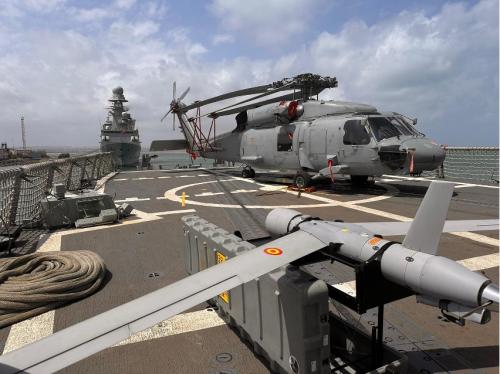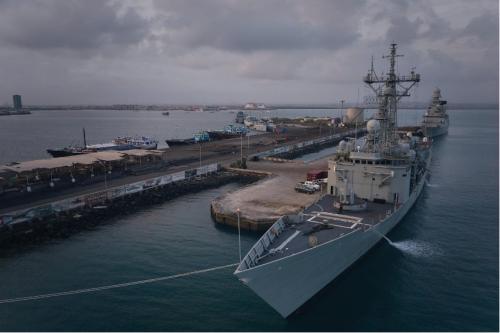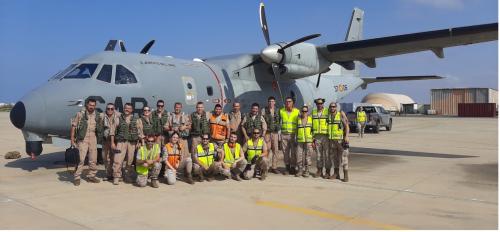
Dear reader,
The security situation in the Area of Operations remains complex and is changing rapidly. Two main events have been taken place during the last month: the liberation of MV RUEN and the hijack of MV ABDULLAH. The release of the MV RUEN, with the dynamic action successfully executed by the Indian Navy, is excellent news. However, our efforts must be permanently sustained, and the hijacking of the MV ABDULLAH is a clear example that the risk is unabated. The cooperation of all maritime security actors is crucial if we are to continue successfully to confront this threat.
In addition, multiple suspicious approaches were reported, together with several boarding attempts from presumed pirates. The assessment of the events that have taken place shows that Best Management Practices, including Private Armed Security Teams (PAST) on board and enrolment in the Maritime Security Centre - Horn Of Africa’s (MSCHOA) voluntary registration scheme, are the best way to successful prevent and deter a piracy boarding attempt.
On a positive note, I had the opportunity to participate in the EU - Djibouti Partnership Dialogue, stressing the excellent relationship with authorities and forces of this Nation, which is a key partner. Moreover, the meeting with the Ministry of Defence and Security Director General were a milestone to strengthen our cooperation. In this regard, the new agreement between ATALANTA and the Djibouti Regional Training Centre is a step forward letting us to enhance our support to the Djiboutian forces in our mutual aim to grant freedom of navigation in the Gulf of Aden and Western Indian Ocean.
The battle against piracy in the North Western Indian Ocean is a matter of professionalism, coordination, constant hard work and operational performance. With its day by day hard work ATALANTA reaffirms its role as key maritime security actor, providing a timely and effective response to any security alert from the very beginning, able to coordinate with all players in the region and deconflict the most effective reaction to any threat.
Vice Admiral Ignacio Villanueva Serrano
EUNAVFOR ATALANTA Operation Commander
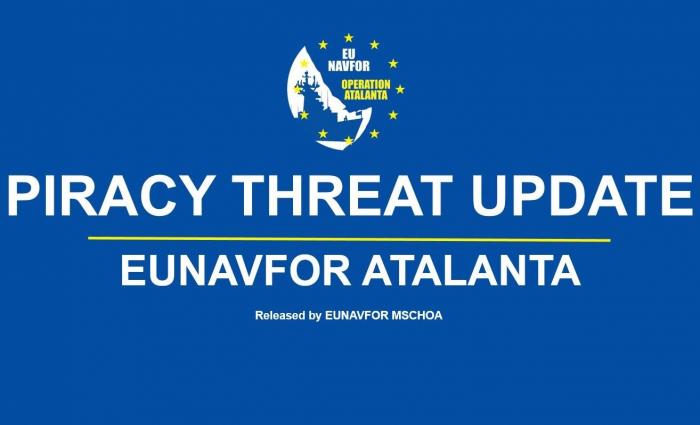
During the month of March, four bulletins on the maritime security and piracy situation issued on the MSCHOA website were published also on EUNAVFOR ATALANTA's social media for a wider dissemination of information.
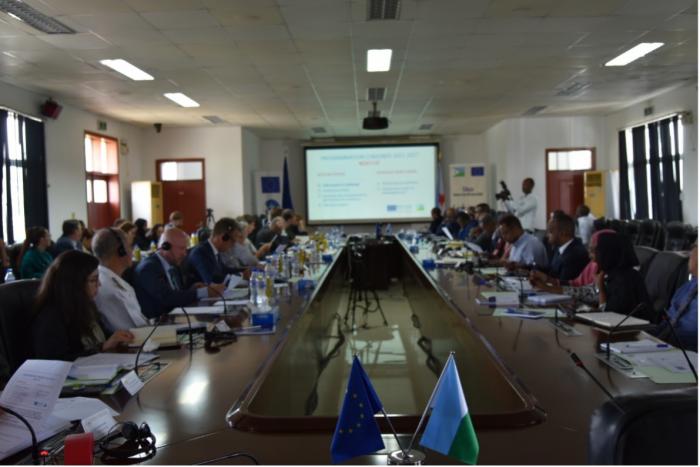
From 16 to 18 March, EUNAVFOR ATALANTA’s Operation Commander Vice Admiral Ignacio Villanueva Serrano paid a visit to Djibouti to meet with relevant national authorities and international representatives. The two milestones of the visit were the participation in the Partnership dialogue EU – Djibouti and the signature of the Memorandum of Understanding between EUNAVFOR ATALANTA and the Djibouti Regional Training Centre (DRTC). The first one is an annual exchange of views on a range of topics between the EU and host countries, designed to help building strong institutions. Operation Commander Villanueva provided his inputs on the current situation in the Area of Operations.
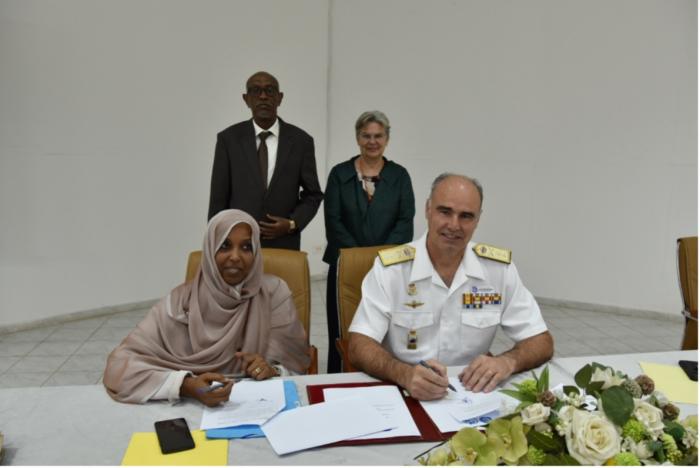
The visit also marked the signature of the Memorandum of Understanding between EUNAVFOR ATALANTA and the Djibouti Regional Training Centre (DRTC). The Memorandum aims at structuring the exchange of information between the two parties on training activities and enhancing the capacity building activities between the two parties.
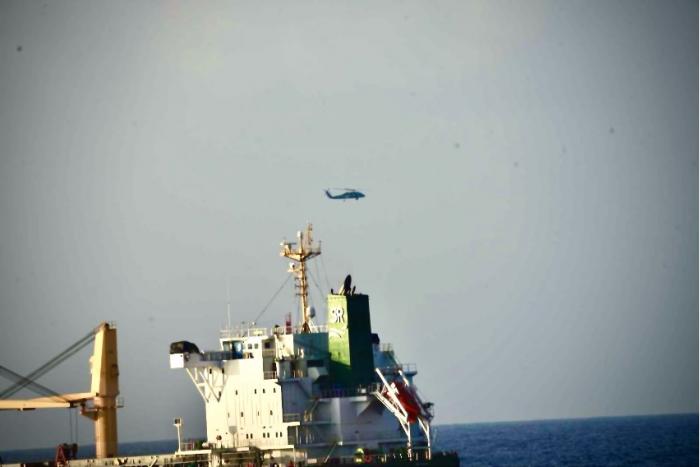
On 12 March 2024, Operation ATALANTA started the engagement in the piracy incident involving the Bangladesh-flagged Bulk carrier merchant vessel ABDULLAH. The attack occurred at a position 600NM east of Mogadishu, Somalia. The vessel’s current position is inside of Somalia’s territorial waters, close to the Horn of Africa.
Visual information gathered from ATALANTA of the merchant vessel confirmed at least 12 presumed pirates on board the ship although the initial alert of the hijack pointed at a group of 20 armed people.
The situation on board remained stable, and the crew has reported to be safe while the abduction is still ongoing.
Operation ATALANTA keeps contact with Bangladesh and Somali authorities, as well with maritime security partners in the area to coordinate the most appropriate action.
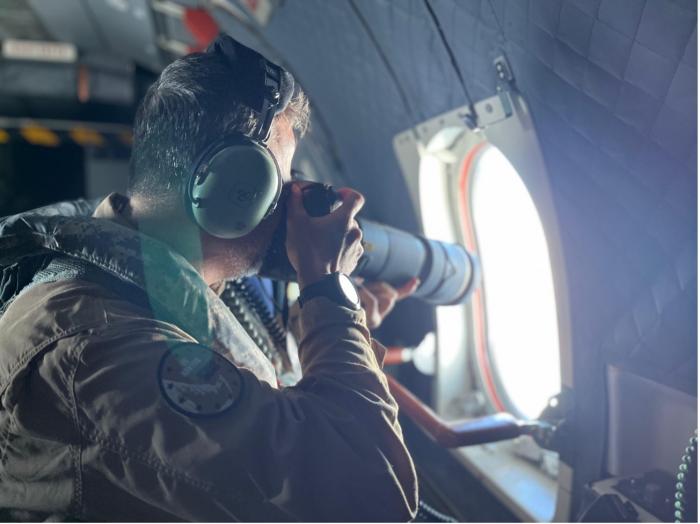
On 16 March, the new rotation of the Detachment Orion from the Spanish Air Force carried out its first maritime surveillance mission.
Operation ATALANTA monitors the Area of Operations from the sky with the VIGMA D-4. This capability is essential to get information on piracy activities and other illegal activities such as IUU Fishing and drug trafficking. The Maritime Patrol Aircraft also surveils the Western Indian Ocean monitoring the transit of World Food Program’s and other vulnerable vessels.
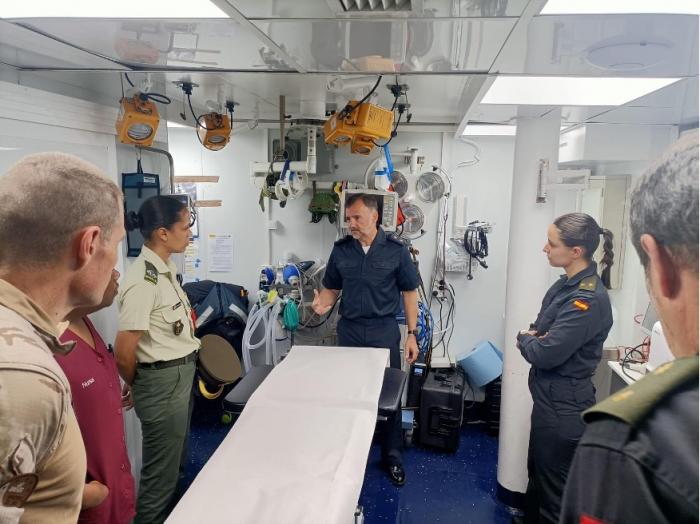
On 20 March, a Seychelles Defence Forces’ medical team paid a visit to the ESPS CANARIAS and met the embarked ROLE 2. The CANARIAS medical team presented their personnel and equipment's exemplary medical capabilities. Both teams actively identified potential areas for future collaborative efforts and strengthened cooperative ties.
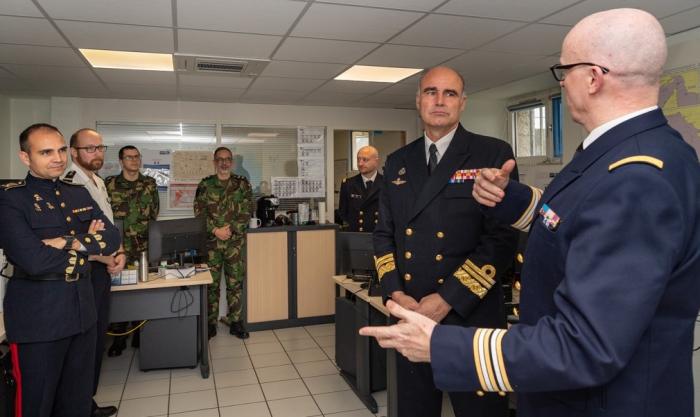
On 19 March, EUNAVFOR ATALANTA’s Operation Commander Vice Admiral Ignacio Villanueva paid a visit to the Maritime Security Centre – Horn of Africa (MSCHOA) facilities located in Brest, France.
As part of the Operations Branch (CJ3) and fully integrated in the OHQ, the MSCHOA is an initiative established by EUNAVFOR ATALANTA aimed to enhance the relations with the shipping industry. MSCHOA manages EUNAVFOR’s voluntary registration scheme (VRS) for vessels transiting the area, and administers an interactive website that enables EUNAVFOR to communicate the latest counter-piracy guidance to the shipping industry and operators to register their vessels’ movements through the region.
This centre is a demonstration of the Operation's efforts to maintain its commitment to maritime security, providing a timely and effective response to any security alert from the very beginning.
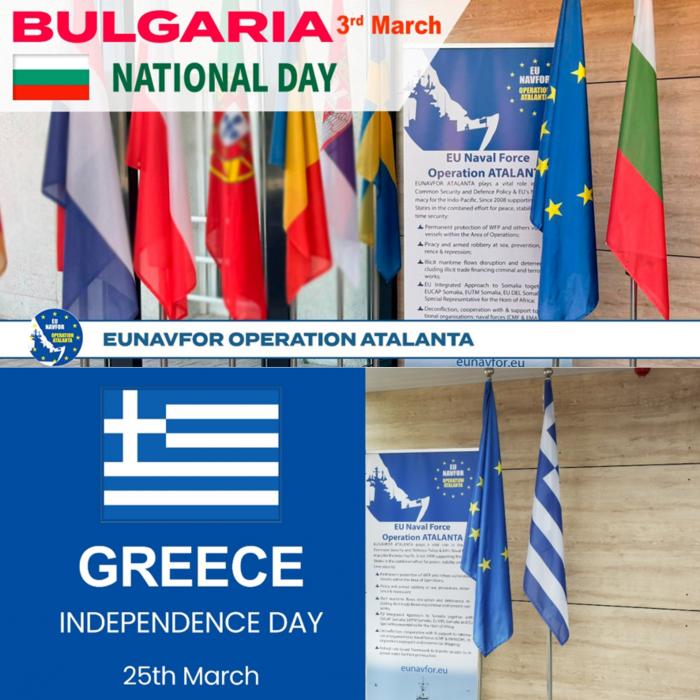
In March, EUNAVFOR ATALANTA celebrated the National Day of Bulgaria and Greece's Independence Day.
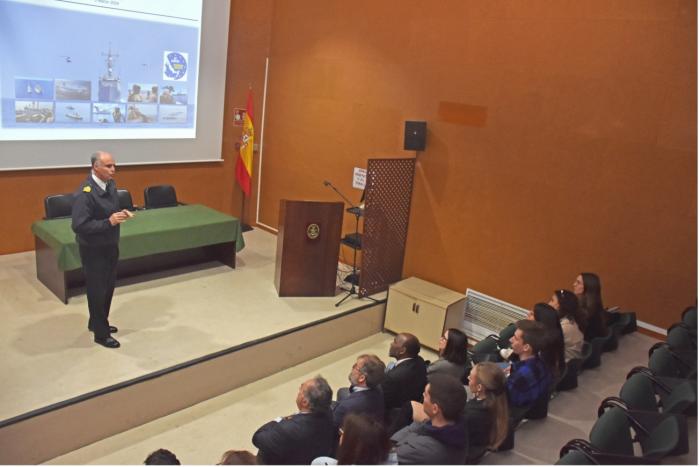
On 5 March, students of the Master of International Relations and Migrations of the University of Cádiz (Spain) paid a visit to the Operation Headquarters.
They were welcomed by the Operation Commander Vice Admiral Ignacio Villanueva Serrano and were briefed on the Operation's tasks and maritime security situation in the Area of Operation. Moreover, they had the opportunity to meet ATALANTA’s Political Advisor, learning first-hand about the ongoing geostrategic developments in the region, and the role of an EU CSDP operation. After the meeting, they toured the Operation Headquarters facilities and met the rest of the personnel.
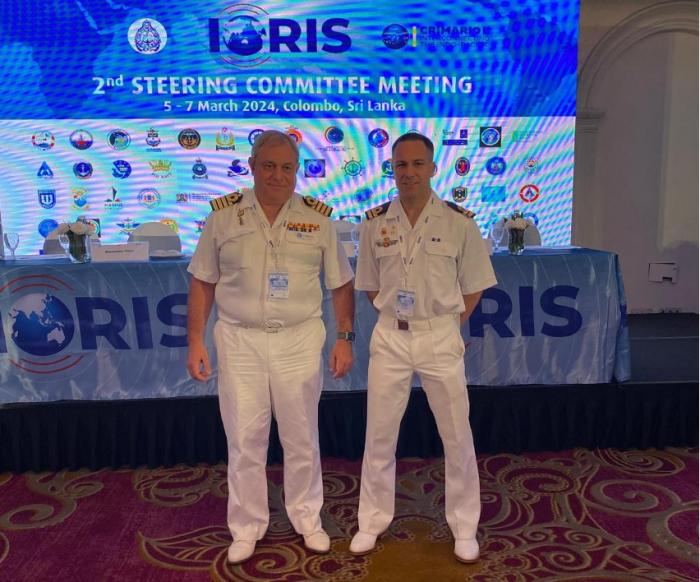
On 5 March, Operation ATALANTA participated in the 2nd IORIS Steering Committee Meeting organized by the EU Commission program CRIMARIO II in Colombo (Sri Lanka). Operation ATALANTA participated as a key actor in maritime security in the Western Indian Ocean.
EUNAVFOR ATALANTA has conducted multiple exercises facilitated by the CRIMARIO tool IORIS, stressing mutual commitment to the development of the regional maritime security architecture.

On 8 March, Operation ATALANTA celebrated the International Women Day. On this significant day, Operation ATALANTA expressed the sincere pride in being part of the global effort for women’s equality in any field.
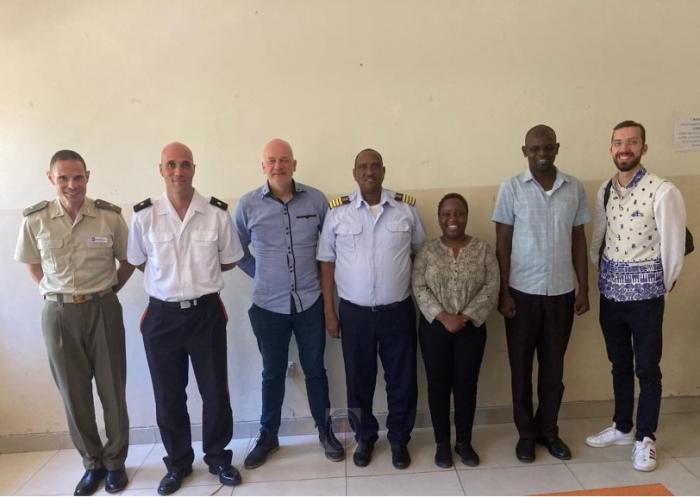
On 7 March, an EUNAVFOR ATALANTA delegation visited the Kenya Coast Guard Service facilities in Mombasa (Kenya). The aim of the visit was the planning of National Multi Agency Maritime Security Exercises in May 2024. Relevant international organizations such as the International Maritime Organization (IMO) and the GO Blue project will also collaborate in these exercises.
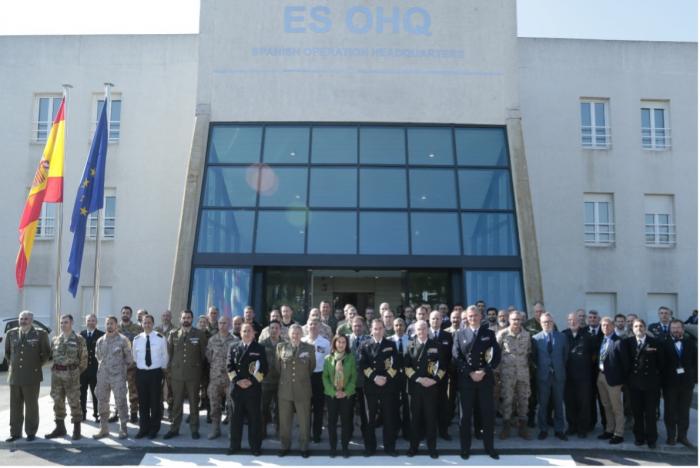
On 29 March, Operation ATALANTA OHQ celebrated the 5th Anniversary of its relocation to Rota, Spain. EUNAVFOR OHQ keeps working on providing direction & guidance to the ATALANTA Force structure to ensure maritime security and freedom of navigation in the Western Indian Ocean. The 20-nation team strives to reach planning and execution full coordination to accomplish EUNAVFOR ATALANTA mandate.
During the month of March, one Spanish frigate, two Italian destroyers and one French destroyer took part in different support modalities to EUNAVFOR ATALANTA. On the other hand, the Maritime Patrol and Reconnaissance Aircraft (MPRA), the Spanish Air Force's VIGMA-D4, has redeployed to Djibouti, starting its surveillance mission from 16 March.
